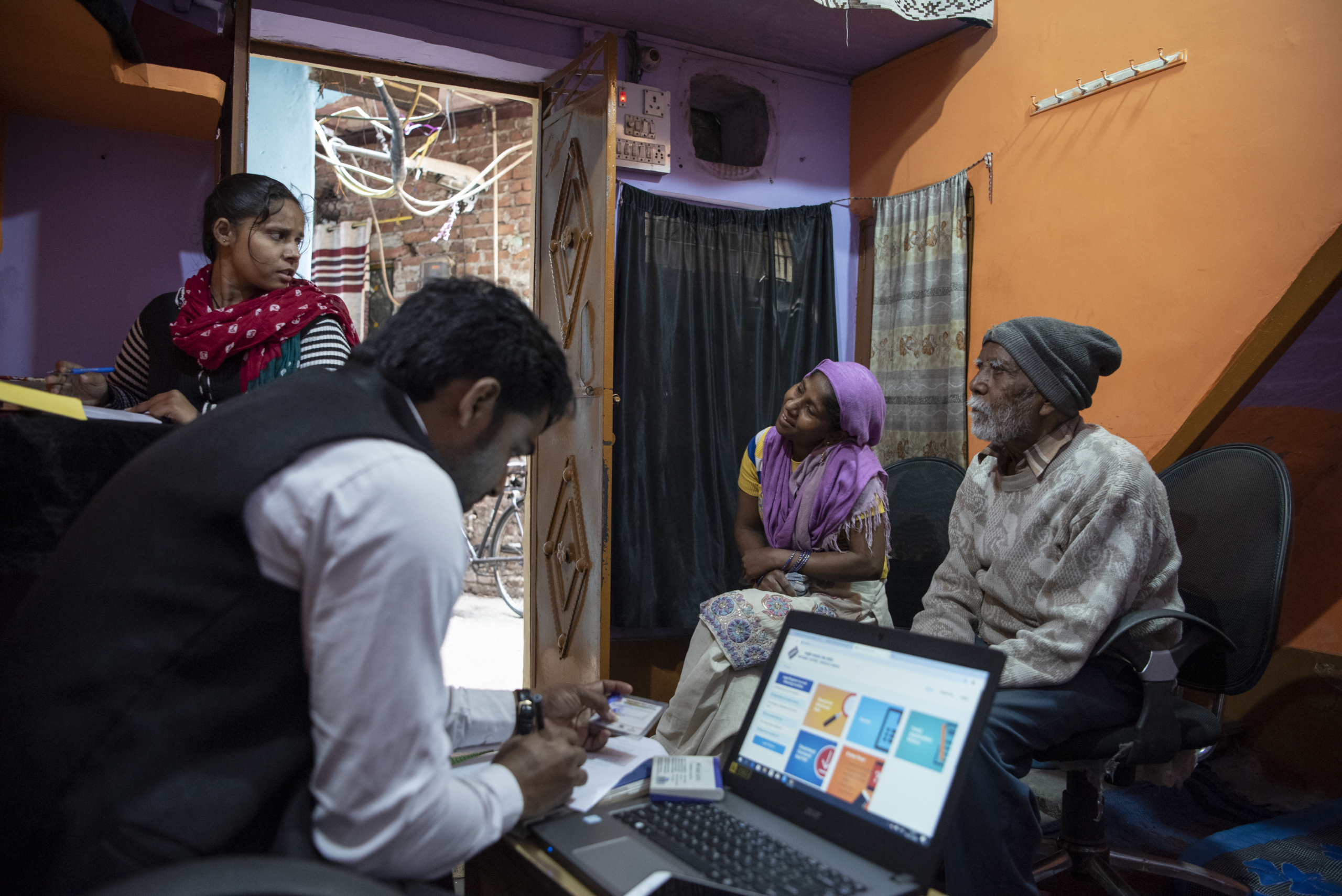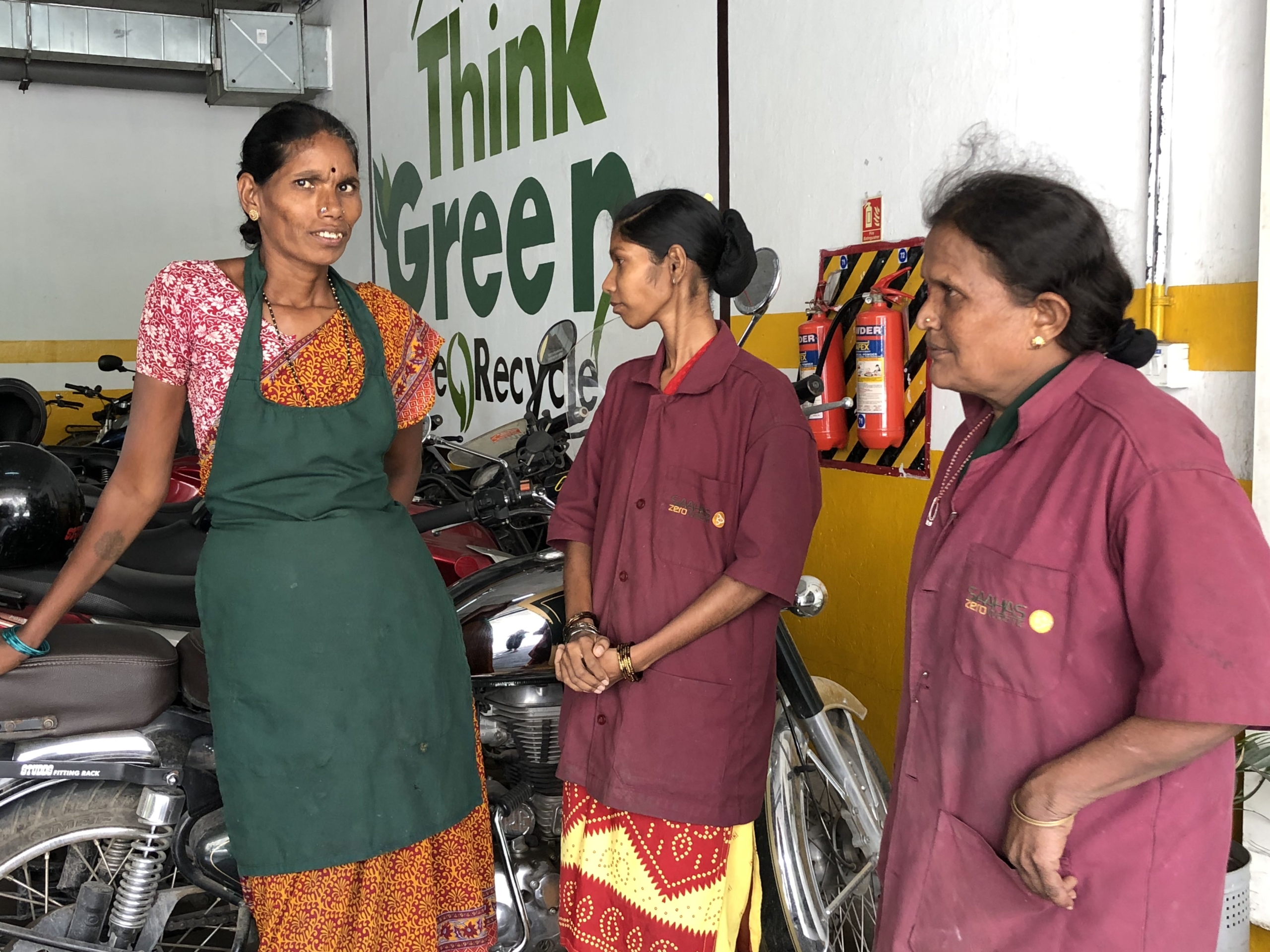

Can These 3 Workforce Trends Help India Create More Dignified Jobs?
As the Indian economy grows at the highest rate of any major economy in the world, workforce trends in India and supply chain sustainability issues will take center stage. This shift has profound implications for the majority of Indians, but particularly the low-wage workforce that comprises nearly 90% of the population. It is crucial to make sure that economic growth is catalytic to poverty eradication efforts by creating meaningful high quality jobs.
From a rise in gig workers to the massive investments flooding to climate tech, new workforce trends in India provide an opportunity to focus on the nature and conditions of jobs for the low-wage workforce. That’s one reason why we are partnering with Upaya Social Ventures for the Dignified Jobs Collaborative, a coalition of impact organizations driving investment in dignified employment opportunities for those living in extreme poverty in emerging markets.
Here’s how these trends can be harnessed to help bring jobs that are safe, stable, inclusive, and rewarding to people across the continent.

Tech
India’s remarkable growth in the tech sector makes it a frequent celebrant for its entrepreneurial spirit. Rapid advancements in technology have led to the creation of numerous jobs, with the Micro, Small, and Medium Enterprises (MSMEs) emerging as one of the largest job creators in the country.
However, amidst this tech-driven boom, it is essential to recognize that many individuals are pushed to become entrepreneurs out of necessity due to limited access to quality jobs. While the growth of tech-driven jobs is promising, there is a need to examine these opportunities through a lens of job quality, particularly concerning the informal labor market that often comprises employees of nano, micro-enterprises, and MSMEs. Ensuring the inclusivity of tech-driven jobs for those in extreme poverty requires concerted efforts and a focus on job quality measures.
The dangers of overlooking job quality in the tech sector are evident, as the fast-paced digitization and automation can exacerbate income disparities and create new vulnerabilities for the low-wage workforce. Without prioritizing quality job creation, the benefits of technological growth may not be evenly distributed, leading to an uneven playing field in the job market. To address these challenges, policymakers and industry leaders should consider the Draft National MSME Digitization policy, which emphasizes tech upgrades and digitization for MSMEs to foster inclusive growth. By focusing on job quality, both in terms of wages and working conditions, India can harness the potential of technology to uplift those reliant on low-wage jobs and create a more equitable and sustainable job market.
Climate Investments
As Upaya wrote earlier this year, dignified jobs can build resilience for the population most impacted by climate change: people in extreme poverty. Embracing the principles of a Just Transition to ensure that green jobs in sustainable industries preserve and enhance the workforce’s dignity and adaptability is a strategic move toward ensuring all of India can face the 21st century’s greatest challenge.
Investments in climate-friendly initiatives are definitely gaining traction in India in 2023. The question is, how much of this capital is going into companies that are creating dignified jobs?
Right now, the answer is “not enough” — but that can change. Upaya’s portfolio includes companies scaling sustainability practices across multiple industries. ONganic, for instance, supports farmers as they transition to organic methods across the value chain, creating better produce, better livelihoods, and better results for the environment. Greenwear trains artisans to make textiles on solar-powered looms, reducing reliance on “dirty” energy sources; another artisan-driven company, Sirohi, designs furniture and homewares out of upcycled plastic waste. Companies in Upaya’s portfolio like Green Worms, Saahas, and WeVois are all finding ways to tackle India’s massive waste problem.

The Gig-Economy’s Growth
A recent BCG report projects a 200% jump in the India gig workforce by 2030. This trend theoretically offers flexibility and autonomy, attracting individuals seeking alternative work arrangements. However, as the gig economy continues to expand, it becomes imperative to critically assess its impact on workers and prioritize job quality.
Frequently, gig work comes at the cost of a stable income and lack of worker protections. Too many gig workers are forced to work multiple full-time ‘gigs’, essentially creating loopholes for employers to retain full-time employees without benefits and security. As India grapples with the challenge of formalizing this sector, it must strike a balance between empowering gig workers and ensuring their rights and well-being.
Upaya portfolio company PickMyWork is one example of what this balance can look like. Founded in 2019, PickMyWork acts as a digital employment platform that brings stability and dignity to gig economy workers and the companies they support. Through their app, PickMyWork provides contractual job opportunities with predictable weekly payments, flexible work hours, virtual skilling opportunities, and short-term financial aid.
Harnessing Workforce Trends in India
Prioritizing job quality will not only uplift individual lives but also foster an environment conducive to poverty alleviation and empowerment, creating a stronger and more resilient society. Understanding and measuring the impact of these trends on quality job creation can serve as a powerful tool in building a prosperous and equitable India. As these trends unfold across the country, The Dignified Jobs Collaborative will benchmark job quality across industries and synthesize data to help all employers embrace the moral and financial urgency of creating a sustainable workforce. Want to join our effort? Reach out and let’s build a more inclusive workforce, together.

